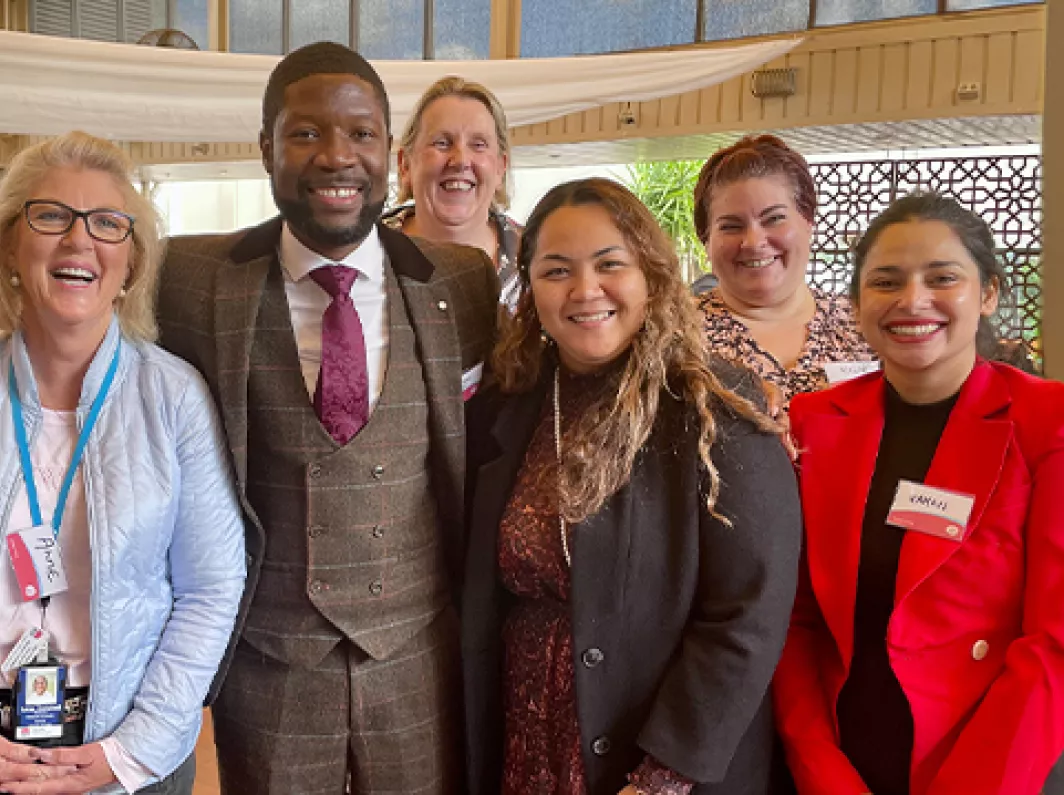
Understanding
Dementia
Dementia Care Connections
Opal HealthCare’s Dementia Care Connections is a community outreach program aiming to enhance peoples’ understanding of dementia, offer methods for connecting with individuals living with dementia, and provide support for their well-being. Head of Dementia Care, Dr Simon Pedzisi DBA, presents our webinar series, sharing insights from his clinical and research experience in the UK and Australia. Our monthly webinars are open to the public. Each month, through our Exploring Dementia webinars, we focus on a different element of dementia care.
If you’re just getting started understanding dementia, we recommend you attend our Foundations of Dementia webinar before registering for our Exploring Dementia webinars.

Dementia Care
Every individual living with dementia will have different needs and preferences. Our carers endeavour to build connected relationships with each resident so that we can deliver the right care for your clinical, social and spiritual needs.
Return to Dementia Care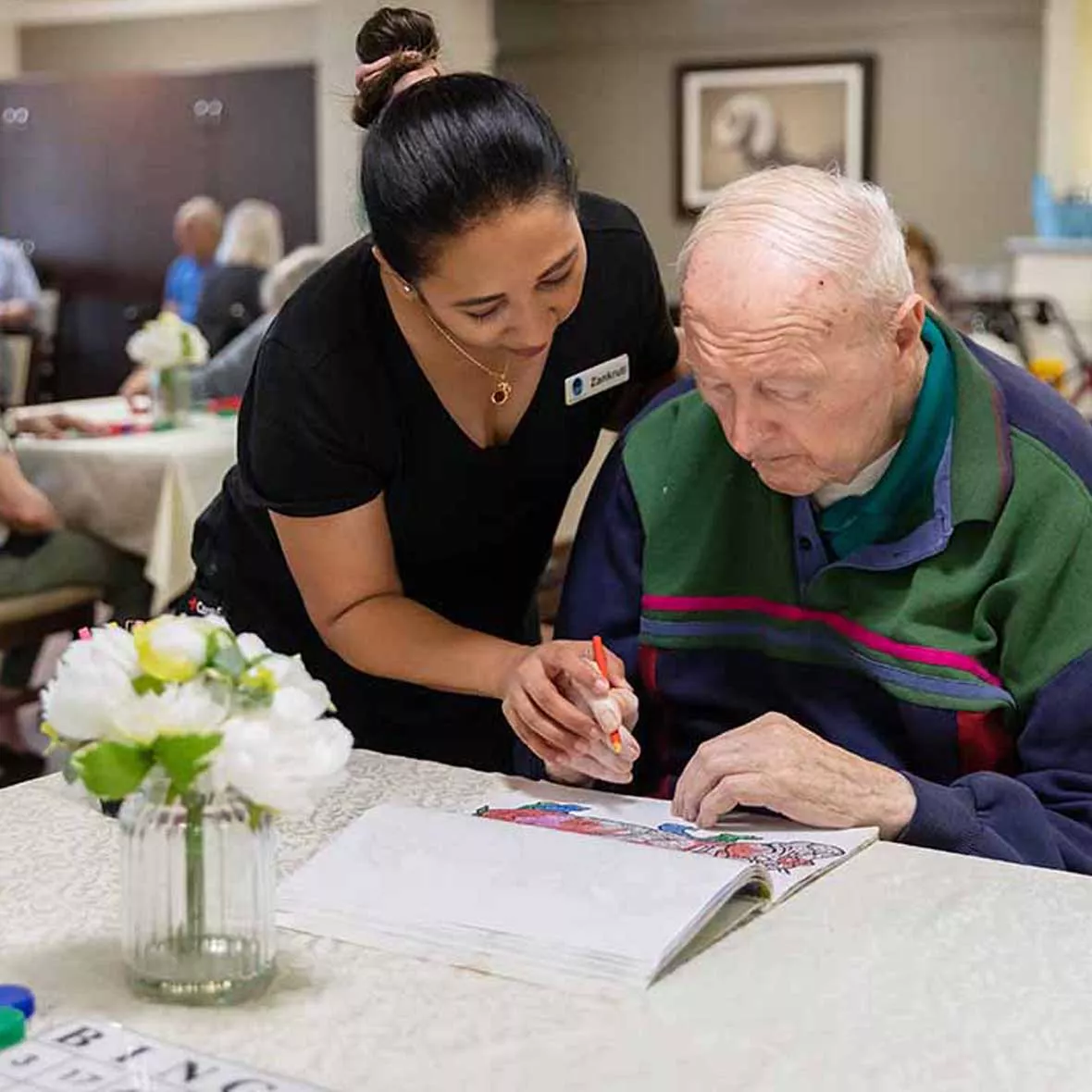
What is dementia?
Dementia describes a collection of symptoms that are caused by disorders affecting the brain. In other words, dementia isn't one specific disease.
Learn more about dementia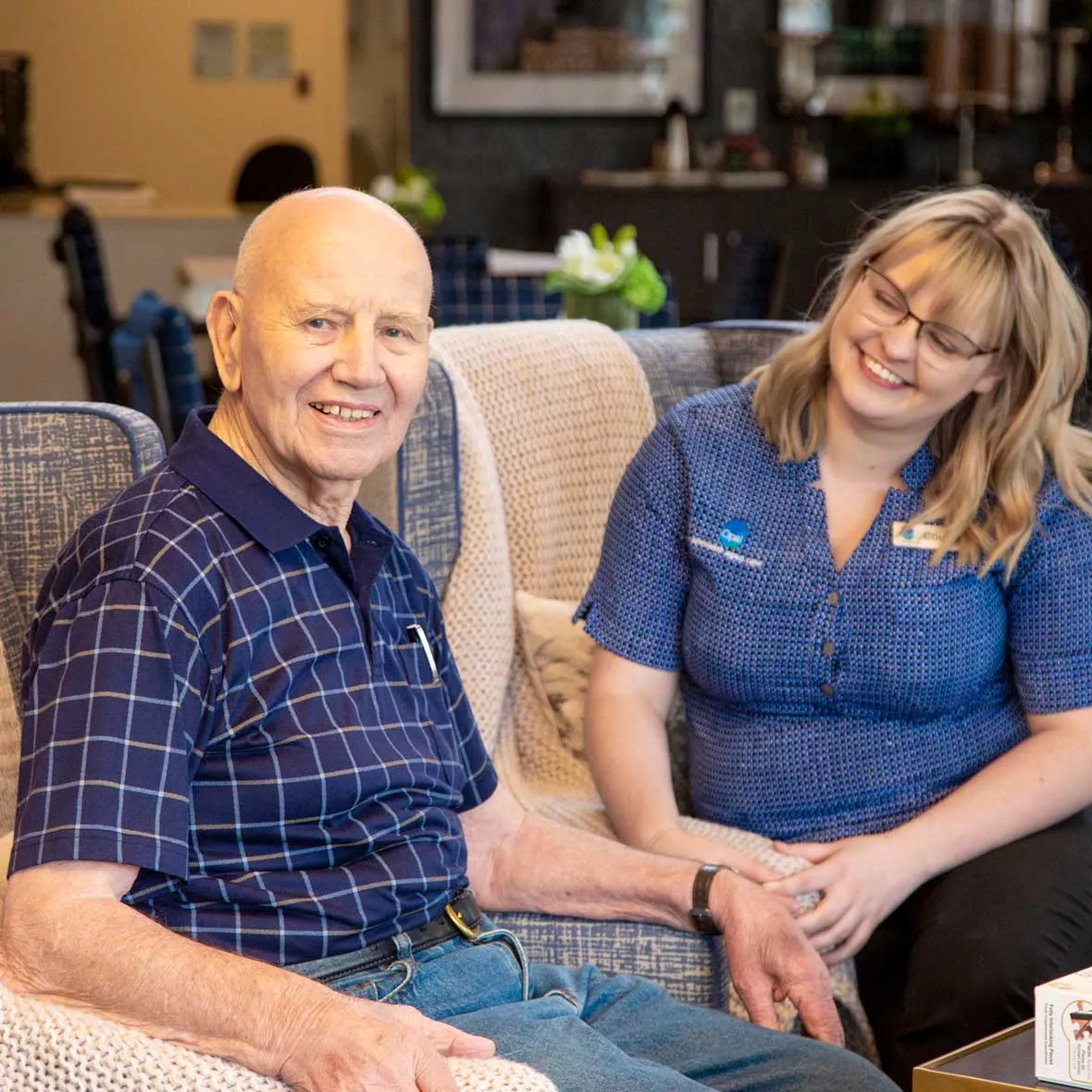
Types of dementia
There are many types of dementia but the most common causes include Alzheimer’s disease, vascular dementia, frontotemporal dementia and dementia with Lewy bodies.
Learn more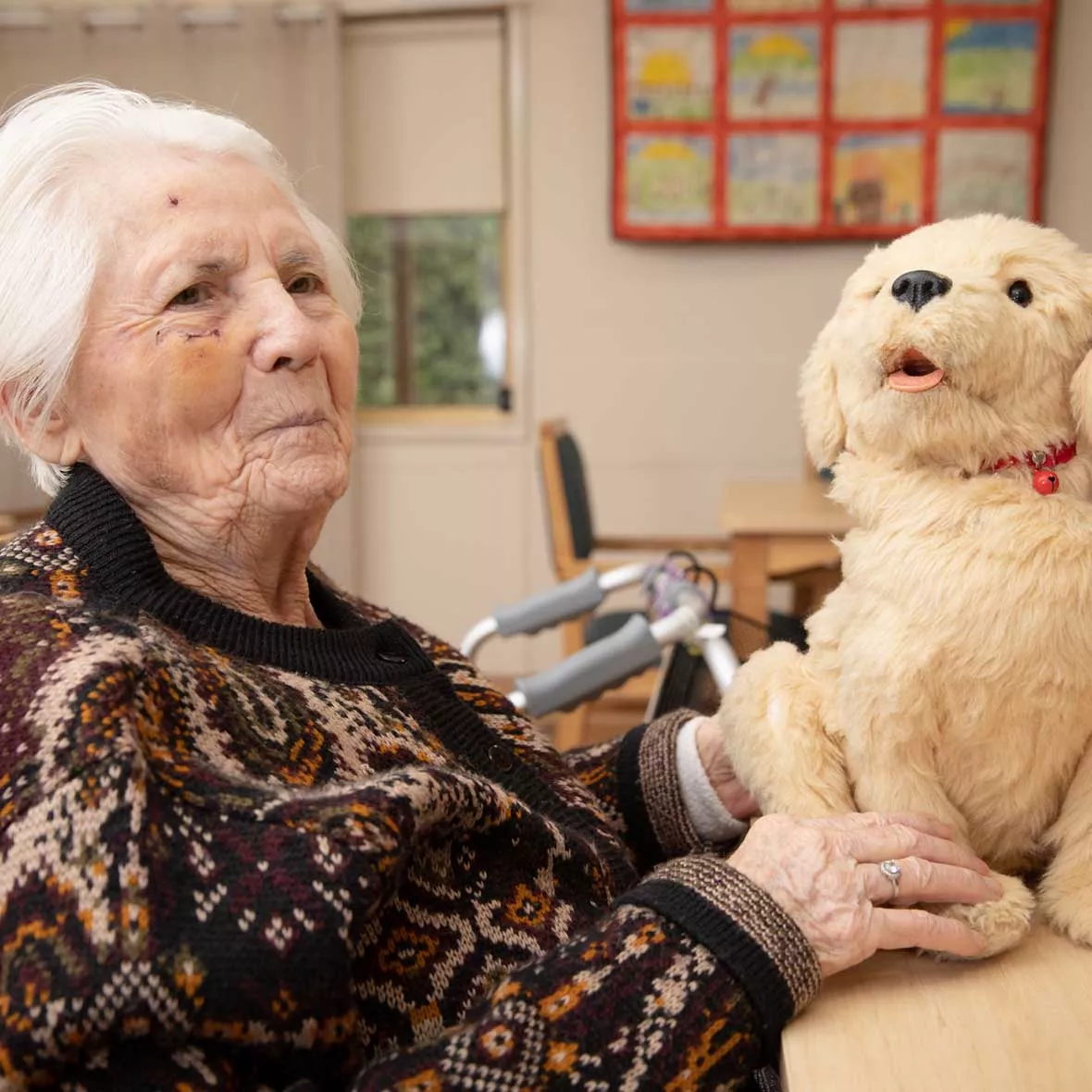
Person-centred care
Person-centred care is at the heart of our approach to care. It means supporting our residents to live a meaningful life every day in a personalised and considered way.
Learn more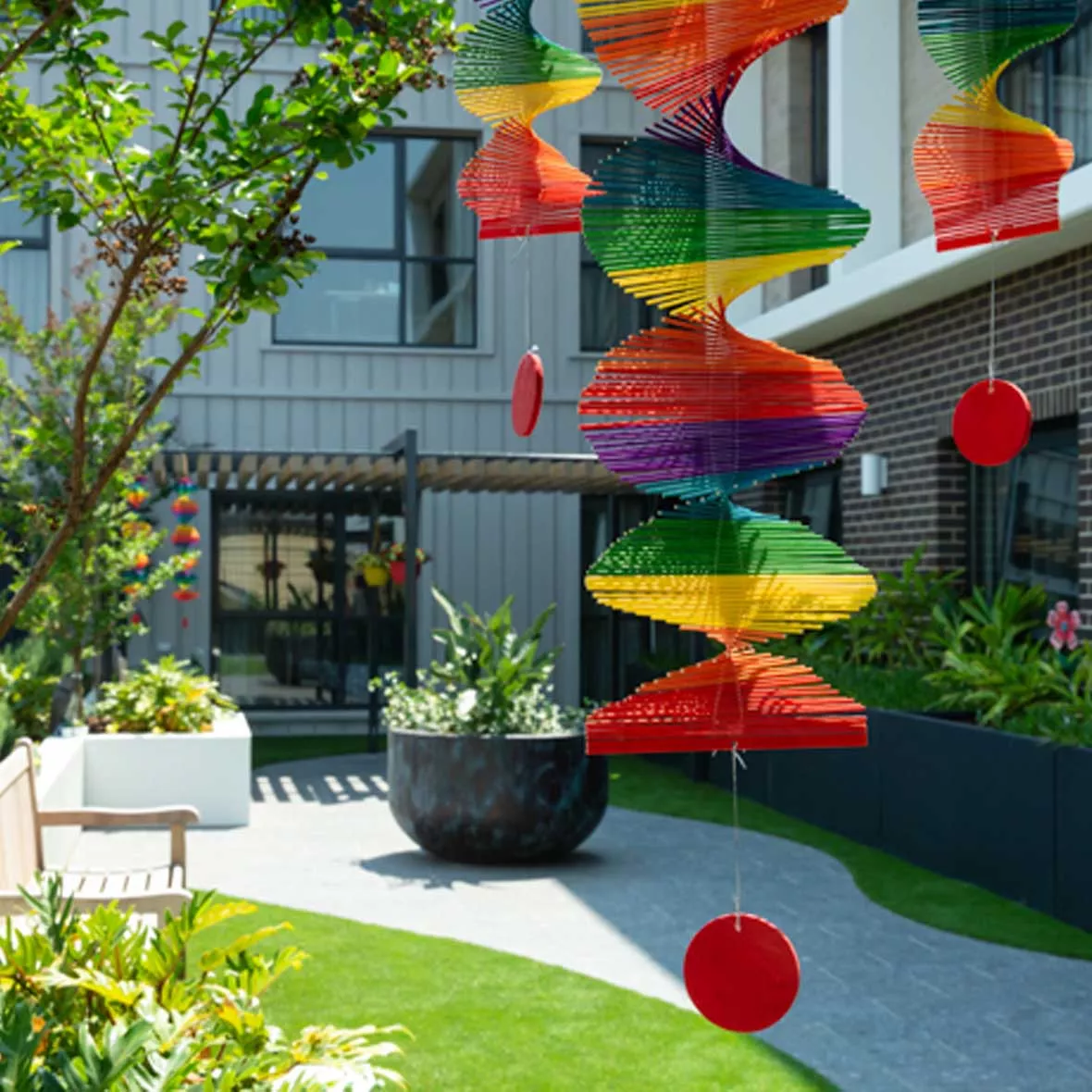
Memory care neighbourhoods
In some of our Care Communities we have areas known as Memory care neighbourhoods (MCN). They are a safe designated area or cluster of rooms where residents living with dementia reside.
Learn moreExplore our Care Communities
Search nowCommonly asked questions about Dementia
-
Dementia isn’t a single disease, but a term used to describe the symptoms of a range of illnesses which cause a progressive decline in the ability to think and perform everyday tasks. It can also lead to changes in personality and behaviour. While there is no cure for dementia, it’s important to keep in mind that it is possible to continue to maintain a good quality of life for many people. For more information, click here.
-
There are many types of dementia but the most common causes include Alzheimer’s disease, vascular dementia, frontotemporal dementia and dementia with Lewy bodies. Understanding the symptoms associated with each type of dementia can help in ensuring each person’s care needs are met.
-
Thinking about the move into residential care is never easy and can bring up all sorts of emotions. It’s time to start the conversation about moving into care when you have concerns that your loved one isn’t coping well with day-to-day activities or if you feel safety is a concern. The earlier you start the conversation, the more time everyone will have to consider options and make informed decisions.
-
Dementia has a huge impact not only on the person who has been diagnosed, but also on those closest to them. Some of the feelings commonly experienced by carers include guilt, grief, loss and even anger. Even if your loved one isn’t ready to move into long-term care, feel free to arrange for a chat with our knowledgeable team who’ll be happy to offer advice or put you in touch with other carers who are going through the same thing and can offer support and understanding.
-
Think about a short stay in respite care to start with. Perhaps arrange to go and have lunch or participate in an activity that your loved one enjoys. This will give you both a chance to find out if the Care Community feels like a good fit and it will give you both confidence in your decision.
It’s natural to feel apprehensive about making such a big decision. It’s important to remember that you’re not alone. Our team understands that it can feel overwhelming and they can provide direct support and suggest strategies to make things easier.
-
Moving house is among the most stressful life events. When moving house is combined with a big life change like moving into residential care, it can have a significant impact. Often the move into care comes about as a result of a traumatic event such as a fall rather than a considered decision process, so the circumstances around the move can feel overwhelming and out of the person’s control. Sometimes the person moving into care can take out their frustrations on their family if they don’t feel in control. It’s important to ensure that your loved one feels a part of the decision making process. If this happens, try not to take it personally. Our team are here to help and support both you and your loved one through this time.
-
Everyone’s different but on average you can expect most people to start feeling more comfortable and at home in around two to six weeks. It’s a big adjustment so try not to get disheartened if it seems to take a while. The most important thing is to just take each day at a time and speak with our leadership team if you have any concerns.